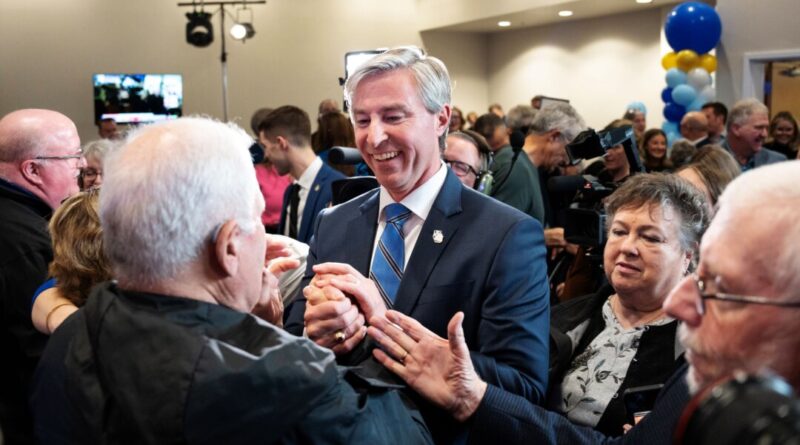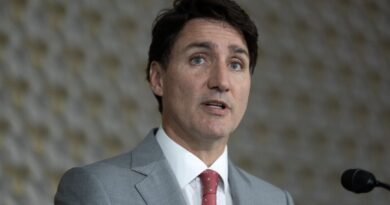How Nova Scotia PC’s Defied Global Trends to Secure an Increased Majority
The Nova Scotia Progressive Conservatives have defied the global trend this year which has seen incumbent governments in other provinces and countries either lose seats or face electoral defeat.
What made for the difference in the Atlantic province, analysts say, could be as simple as focusing on issues that matter to the electorate, while some other factors were at play as well.
The NDP won nine seats, up three from the previous term and being elevated to Official Opposition, while the Liberals picked up two, for an overall loss of 12 seats. An incumbent Independent MLA held on to her seat in the election.
Breaking Precedent
Houston’s decisive win marked the sole provincial election in Canada this year in which the incumbent party increased its majority. Elections in British Columbia, Saskatchewan, and New Brunswick earlier this fall saw the governing party either reduce its number of seats or lose power.
B.C. Premier David Eby’s NDP barely beat out the Conservatives in a historic election in October in which the victor was decided by the counting of absentee and special ballots.
It was a similar story in elections around the globe, including in the UK and France.
The July election in the U.K. saw the opposition Labour Party defeat the governing Conservative Party in a landslide victory while the snap election in France saw President Emmanuel Macron’s centrist alliance lose 76 seats to finish second behind the New Popular Front alliance.
The Houston PCs first came to power in 2021, winning against the governing Liberals.
Winning a second election more convincingly than the first is no easy feat, according to Fred DeLorey, former national campaign manager for the Conservative Party of Canada.
“Tim Houston’s victory is a reminder that authenticity and action matter in politics,” he said. “He’s shown that incumbents, when they focus on the right issues, can still make it happen.”
Opposition parties criticized Houston’s early election call, saying he had in 2021 introduced legislation to establish fixed dates for provincial elections, to ensure elections would take place in the summer. Houston, whose party had been polling high steadily in recent months, said he needed to call a snap election well before the fixed election date of July 15, 2025, to secure a new mandate to stand up for the province, including on the issue of the federal carbon tax.
Some of the strongest criticism levelled by the opposition was the situation of health care in the province, with the opposition saying the registry for those seeking a family doctor had more than doubled to 140,000 while the PC government was in power. Houston said that the province’s economy was growing and that his government had made progress on health care, adding more doctors and nurses, and that more time was needed.
Impact of Federal Politics
Aurora Strategy Group principal Chris Collins, a former MLA and speaker of the New Brunswick legislature, told The Epoch Times that Houston’s victory came thanks to branding and track record, but the dynamics of federal politics also played a role.
“He’s not despised in his province, and he’s done a reasonably good job as premier,” Collins said.
Contributing to his win, Collins said, is the unpopularity of the Trudeau Liberals, who have been consistently trailing in the polls.
“I think that this election was a win, certainly a win by Mr. Houston, and I think that it would have been a win anyway,” he said. “But I think that Mr. Trudeau certainly helped that be a big win.”
The provincial Liberal defeat was a devastating one, Collins said, noting the party won just two seats.
In many ways, New Brunswick’s former premier was the exception to that rule, Collins noted, saying Higgs had lost popularity in the province. The PC’s Higgs, who led a low-key campaign this year, first became premier in 2018, and won a majority government in 2020.
“The polls were really close until the third or fourth week of the campaign in New Brunswick. So it took a while to overcome that anti-Trudeau sentiment,” Collins said.
A Solid Stance
Houston was also seen as Nova Scotia’s best option to deal with the federal government, DeLorey said. Houston has been vocal about affordability issues and the impact the federal carbon tax is having on people’s day-to-day lives in Nova Scotia.
He was one of four premiers to testify before a federal committee this spring in a bid to stop the April 1 carbon tax hike.
Voters remembered that he had stood up to the federal government to defend “Nova Scotians against Justin Trudeau’s policies like the carbon tax,” DeLorey said. “That clarity and focus resonated.”
Another key to Houston’s success was having a campaign that spoke directly to voters, DeLorey said.
“The PCs’ priorities—lower taxes, more doctors, and higher wages—spoke directly to voters. Houston promised action and delivered results,” he said.
Personality and policy are the two elements that are crucial to any successful campaign, Collins noted. If people like a candidate’s policies and his personality, then it is hard to lose, he said.
“The ugliness of politics, as [former New Brunswick Premier] Frank McKenna once said, is that governments defeat themselves,” Collins added. “And you know, in this case, Mr. Houston hasn’t had much of an opportunity much to defeat himself.”





